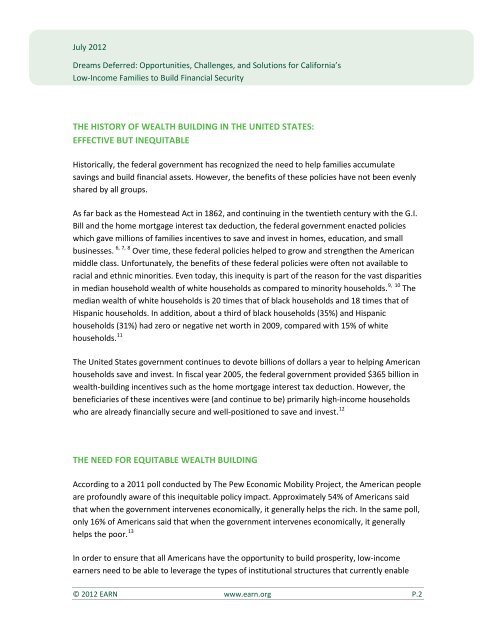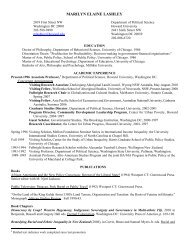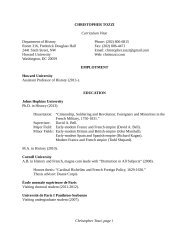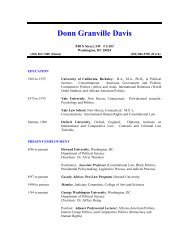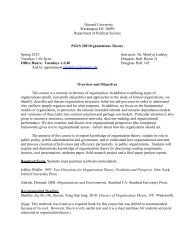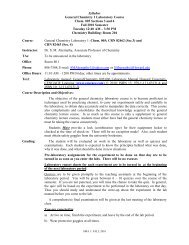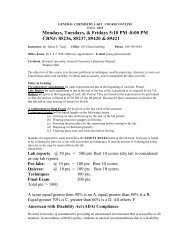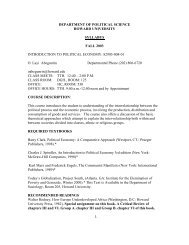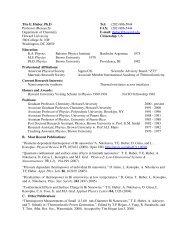Dreams Deferred: - COAS - Howard University
Dreams Deferred: - COAS - Howard University
Dreams Deferred: - COAS - Howard University
Create successful ePaper yourself
Turn your PDF publications into a flip-book with our unique Google optimized e-Paper software.
July 2012<br />
<strong>Dreams</strong> <strong>Deferred</strong>: Opportunities, Challenges, and Solutions for California’s<br />
Low-Income Families to Build Financial Security<br />
THE HISTORY OF WEALTH BUILDING IN THE UNITED STATES:<br />
EFFECTIVE BUT INEQUITABLE<br />
Historically, the federal government has recognized the need to help families accumulate<br />
savings and build financial assets. However, the benefits of these policies have not been evenly<br />
shared by all groups.<br />
As far back as the Homestead Act in 1862, and continuing in the twentieth century with the G.I.<br />
Bill and the home mortgage interest tax deduction, the federal government enacted policies<br />
which gave millions of families incentives to save and invest in homes, education, and small<br />
businesses. 6, 7, 8 Over time, these federal policies helped to grow and strengthen the American<br />
middle class. Unfortunately, the benefits of these federal policies were often not available to<br />
racial and ethnic minorities. Even today, this inequity is part of the reason for the vast disparities<br />
in median household wealth of white households as compared to minority households. 9, 10 The<br />
median wealth of white households is 20 times that of black households and 18 times that of<br />
Hispanic households. In addition, about a third of black households (35%) and Hispanic<br />
households (31%) had zero or negative net worth in 2009, compared with 15% of white<br />
households. 11<br />
The United States government continues to devote billions of dollars a year to helping American<br />
households save and invest. In fiscal year 2005, the federal government provided $365 billion in<br />
wealth-building incentives such as the home mortgage interest tax deduction. However, the<br />
beneficiaries of these incentives were (and continue to be) primarily high-income households<br />
who are already financially secure and well-positioned to save and invest. 12<br />
THE NEED FOR EQUITABLE WEALTH BUILDING<br />
According to a 2011 poll conducted by The Pew Economic Mobility Project, the American people<br />
are profoundly aware of this inequitable policy impact. Approximately 54% of Americans said<br />
that when the government intervenes economically, it generally helps the rich. In the same poll,<br />
only 16% of Americans said that when the government intervenes economically, it generally<br />
helps the poor. 13<br />
In order to ensure that all Americans have the opportunity to build prosperity, low-income<br />
earners need to be able to leverage the types of institutional structures that currently enable<br />
© 2012 EARN www.earn.org P.2


